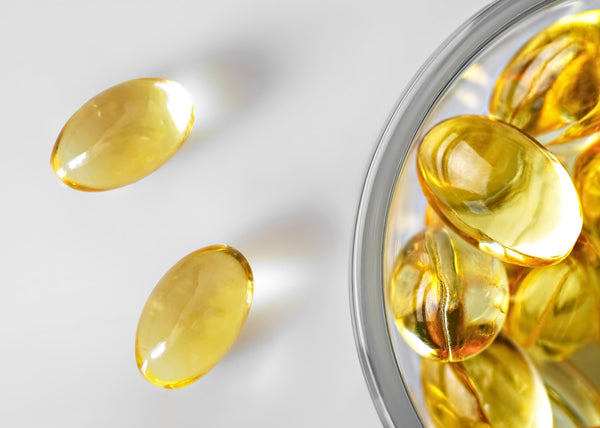Busting 7 Myths Surrounding Female Fertility Problems
Fertility is considered a very important aspect of womanhood in our culture. Many rituals and traditions are practiced to usher in adolescence, which is actually the beginning of the fertility stage in a woman's life. However, it is the women who are misguided about many facts regarding fertility and are often blamed for not being able to conceive.
Today we list out and bust 7 common myths and misconceptions around female fertility issues and let you know things that are important to understand this function of the body.
Myth 1 : Fertility is only a Female issue – One of the biggest misconceptions surrounding fertility is that it concerns only women. The fact is that men and women both are equally affected with decline in fertility due to ageing and other factors that affect reproductive health.
Myth 2 : Fertility issues can only be treated medically – When planning to go the family way, women begin feeling the pressure to conceive sooner and begin getting stressed about it. Fertility is like any other function in the body that gets affected due to poor diet, detrimental lifestyle, stress and age. But fertility may not always require medical attention and can be bolstered with the help of the right nutrition and daily habits.
Myth 3 : Already a parent so no chance of fertility issues – It is a common assumption that women who have borne children before will not develop any fertility problems later on. False! Fertility issues may happen with anyone at any stage. Women who have given birth under 30 years of age, without any problems may face issues while conceiving next time round since one’s fertility is likely to decline with age. Also the body keeps undergoing many changes and so does fertility, which may be impacted due to hormonal changes in women’s bodies, stress levels, menstruation and ovulation cycle, among other things.
Myth 4 : Social smoking does not impact fertility - Smoking causes more damage in our body and has a far-reaching impact than what we realise. Even second-hand smoke can cause fertility issues and adversely affect hormonal balance in the body causing conditions like irregular menstruation, Polycystic Ovary Syndrome (PCOS) and difficulty in conception.
Myth 5 : Younger women are less susceptible to fertility issues – Indeed,
women have a biological clock and studies show that there is a decline in chances of conception post the age of 35 years. However, fertility issues are not limited to any age group specifically. In the modern world factors like, poor nutritional diets, inadequate sleep and irregular routines and pollution severely affect reproduction function and cause fertility issues even at a young age.
Myth 6 : Your overall health will not matter – Women need more dietary iron than men as they lose iron from the body during menstruation. They have higher mineral and vitamin needs. If these nutritional needs are not met on a daily basis then it severely impacts overall health including fertility. Reproductive performance is definitely influenced by foods and type of nutrition. An unbalanced caloric and protein intake due to incorrect food consumption is responsible for severe under- or overweight issues, leading to alterations of the ovarian function with subsequent increase in infertility.
Myth 7 : Stress does not affect fertility – To believe that stress will not affect your reproductive function is like being an ostrich in the face of a threat. There’s ample research that validates the negative impact of stress on women who have fertility issues and are struggling to conceive. Stress is considered an important factor in modern-day living that impacts reproductive health and worsens conditions like PCOS and infertility. Often gynecologists and fertility physicians recommend women with infertility issues to go for stress management practices like meditation, counseling and therapy to aid the treatment for better outcomes.
Can nutritional supplements help maintain women's health and fertility?
Now that we know the facts around female fertility, we must know what we can do to maintain it sustainably and naturally.
Nutritional science has made many breakthroughs in the last few years and with the use of modern day technology to develop highly efficacious health supplements that provide measured daily value of nutrients, which help maintain all body functions.
Wellbeing Nutrition’s Slow Fertility For Her is a scientifically developed multivitamin for women to gradually prepare and nurture her fertility. These capsules combine the most powerful nutriscience with fast-absorbing vegan omega oil & slow-release plant-based multivitamin beadlets with potent antioxidants and anti-inflammation like ashwagandha and spirulina.
Diet and lifestyle also have a huge impact on fertility. Clinically researched ingredients of Slow capsules help in regularizing hormones and menstrual cycle, reducing inflammation and boosting the immune system. Daily intake of this revolutionary supplement can aid in ovulation and support conception.
Along with this supplement, it is advisable to stop smoking, reduce trans fat consumption, lessen excessive caffeine intake, maintain healthy weight, de-stress yourself with meditation or yoga, consume antioxidant-rich foods, and take multivitamins with B-vitamins, vitamin D, zinc & other essential antioxidants and nutrients that may help boost fertility.
It is very important to understand that the solutions to our health problems are available in the food we eat, nutrients we consume and the lifestyle we lead. That is why begin with setting things right in these departments!
References
Silvestris E, Lovero D, Palmirotta R. Nutrition and Female Fertility: An Interdependent Correlation. Front Endocrinol (Lausanne). 2019;10:346. Published 2019 Jun 7. doi:10.3389/fendo.2019.00346
Rooney KL, Domar AD. The relationship between stress and infertility. Dialogues Clin Neurosci. 2018;20(1):41-47. doi:10.31887/DCNS.2018.20.1/klrooney
Nasimi Doost Azgomi, Ramin et al. “Effects of Withania somnifera on Reproductive System: A Systematic Review of the Available Evidence.” BioMed research international vol. 2018 4076430. 24 Jan. 2018, doi:10.1155/2018/4076430
Huang, Haohai et al. “Quantifying the effects of spirulina supplementation on plasma lipid and glucose concentrations, body weight, and blood pressure.” Diabetes, metabolic syndrome and obesity : targets and therapy vol. 11 729-742. 14 Nov. 2018, doi:10.2147/DMSO.S185672


























 DOWNLOAD NOW
DOWNLOAD NOW
